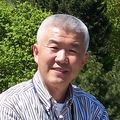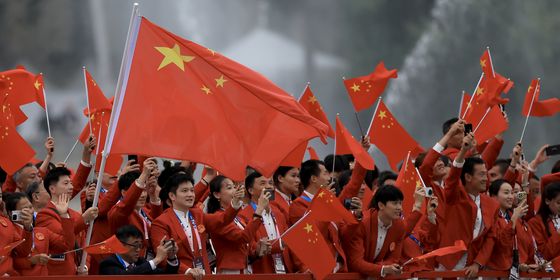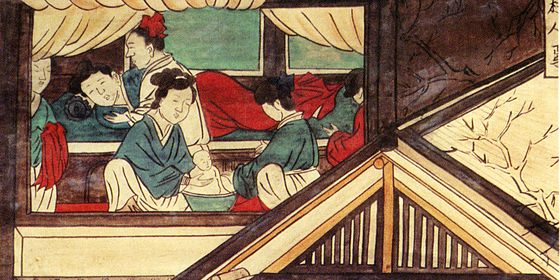A character to care for and cherish
In classical Confucian belief, utopia is where “the old are provided for, the middle-aged are employed, the young are brought up, and all the widowed, orphaned, childless, and disabled are cared for” (老有所终,壮有所用,幼有所长,矜寡孤独废疾者皆有所养). First recorded in the “Liyun” chapter of Confucius classic The Book of Rites, this ideal, known as “Great Unity” has influenced many politicians and reformers over the last 2,000 years.
In the Lebanese film Capharnaüm, the 12-year-old Zainin talks about the basic human need to be cared for: “I want adults who can’t raise children not to have children.” In nature, wild animals instinctively take care of their young, while today, Chinese parents can sign up for courses in the art of care, nourishment, and support—all encapsulated in the character 养 (yǎng).
Developed in the Warring States period, the traditional version of 养 is 養, consisting of a 羊 (yáng, sheep) radical at the top, which informs its pronunciation, and a 食 (shí, eating) radical below. It originally referred to raising livestock like sheep and water buffalo, but was later applied to plants. In the Spring and Autumn period, economist and politician Guan Zhong proposed 养桑麻,育六畜 (yǎng sāng má, yù liù chù, “growing mulberry and hemp, and raising six species of livestock”) as the best way to lead the state and people to prosperity.
Today, the character is applied to the raising of all animals. A formal word for raising livestock is 饲养 (sìyǎng). For instance, 中国饲养猪的历史可以追溯到新石器时代。(Zhōngguó sìyǎng zhū de lìshǐ kěyǐ zhuīsù dào Xīnshíqì shídài. “The history of pig-raising in China can be traced back to the Neolithic Age.”)
Indoor plants and small pets, which require special care by humans, also use the character 养, as in 养花 (yǎng huā, growing flowers) or 养猫 (yǎng māo, keeping a cat). When it comes to humans, 养 can refer to giving birth to and taking care of a child. For instance, 她养了一个大胖小子。(Tā yǎng le yí gè dà pàng xiǎozi. She delivered a big baby boy.) People traditionally had children to provide security for themselves in old age or 养儿防老 (yǎng’ér fánglǎo). Those unable to have their own children may choose to adopt (领养, lǐngyǎng), thus becoming 养父母 (yǎngfùmǔ, foster parents) to their 养子 (yǎngzǐ, adopted sons) and 养女 (yǎngnǚ, adopted daughters).
In a Confucian society, adults had a moral and legal obligation both to provide for (赡养, shànyǎng) their parents and grandparents, and to bring up (抚养, fǔyǎng) their offspring. They are also responsible for supporting the whole family and feeding its members (养家糊口, yǎngjiā húkǒu).
How best to raise one’s children, though, has been a puzzle since ancient times. One proverb states, “穷养儿富养女 (Qióng yǎng er fù yǎngnǚ. Raise sons in poverty and daughters in affluence.)”; this way, it was believed, sons could be trained (培养, péiyǎng) to be strong and bear more familial and social responsibilities, while daughters would become generous and nurturing, and attract good marriage partners.
In recent decades, though, China’s economic development and family planning policies have allowed increasing numbers of families to raise their only child in prosperity, producing many so-called “little emperors” who are pampered and spoiled (娇生惯养, jiāoshēng guànyǎng): 她从小娇生惯养,没有受过一点儿委屈。(Tā cóng xiǎo jiāoshēng guànyǎng, méiyǒu shòu guò yīdiǎnr wěiqu. “Living in luxury ever since childhood, she has never been put to any inconvenience.”)
养 is rarely ever a single action: People, as well as machines, and infrastructure, require maintenance or upkeep (保养, bǎoyǎng) in order to function well, as in 你身体弱,应当好好保养 (Nǐ shēntǐ ruò, yīngdāng hǎohao bǎoyǎng. “You have a delicate constitution and need to take good care of yourself”). This is the principle behind 养生 (yǎngshēng, “preserving life”), a Chinese philosophy that dates back to at least the Daoist sage Zhuangzi, which advocates staying healthy by applying a combination of traditional Chinese medicine, nutrition, aesthetics, psychology, and exercise.
There are numerous interpretations of the best path to preserving life (养生之道, yǎngshēng zhī dào). Ming physician Wan Quan summarized it into four points: “Lessen desires, guard against exercise, follow the natural law of the four seasons, and be cautious with medicine.” Those who get sick, wounded, or simply tired may need care in order to 养病 (yǎngbìng, convalesce), 养伤 (yǎngshāng, heal), or 休养 (xiūyǎng, recuperate).
It’s not only the body that requires 养: people may need rest to improve their energy (养神, yǎngshén), or cultivate their mind and character (修心养性, xiūxīn yǎngxìng). The strategist Zhuge Liang is said to have told his children, 静以修身, 俭以养德 (Jìng yǐ xiūshēn, jiǎn yǐ yǎng dé. Quietude promotes learning, frugality cultivates virtue), while Mencius’ motto was: 我善养吾浩然之气。(Wǒ shàn yǎng wú hàorán zhī qì. “I am good at fostering my noble spirit.”)—a good retort to the next person who dares criticize you for napping during the day!
On the Character: 养 is a story from our issue, “The Good Life.” To read the entire issue, become a subscriber and receive the full magazine.













